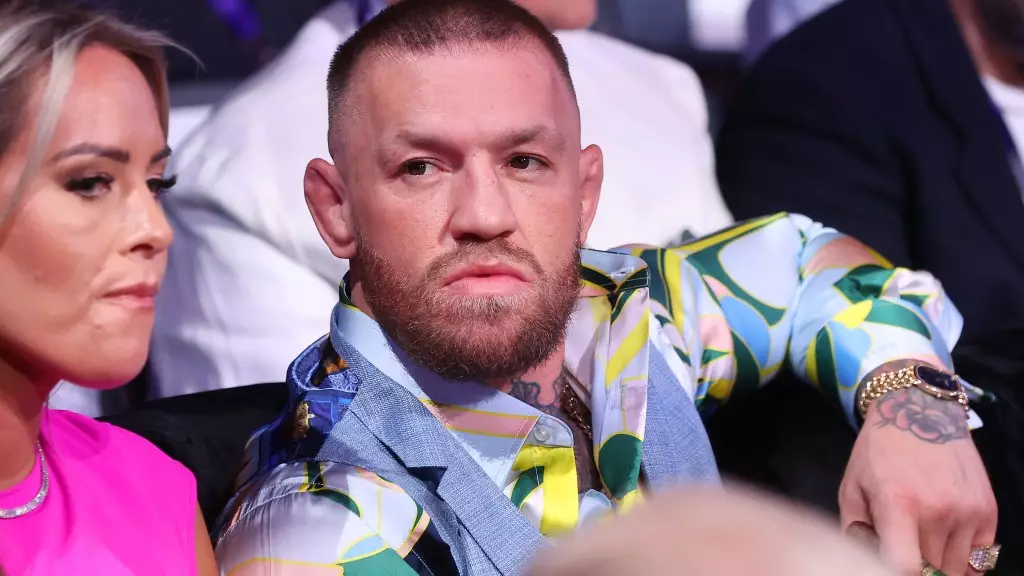The case surrounding UFC fighter Conor McGregor has taken a troubling turn as it progresses through the High Court in Dublin. In a civil lawsuit filed by Nikita Ni Lamhain, known as Hand, the allegations suggest that McGregor, along with another individual named James Lawrence, was involved in a serious crime back in December 2018. The context of this situation is not just a legal battle; it is a broader examination of power dynamics, personal agency, and the responsibilities of public figures in the wake of allegations of misconduct.
According to reports emerging from the courtroom, the alleged incident took place in a hotel room while Hand was reportedly intoxicated—a situation that raises immediate ethical and legal questions. McGregor and Lawrence have denied any wrongdoing, proclaiming their innocence as the case unfolds. The presence of both parties in court emphasizes the gravity of the situation, as well as the emotional weight that claims of this nature can carry.
Dr. Daniel Kane, the emergency room gynecologist who treated Hand shortly after the incident, added a scientific element to the proceedings. His account, which outlined physical evidence consistent with Hand’s claims, introduces a pivotal layer to the narrative. The jury, comprised of twelve individuals, was presented with images depicting bruises on Hand’s body, creating a graphic representation of the alleged assault. These visuals serve to remind all involved of the severe impact such accusations can have, not only on the individuals in question but also on societal perceptions of consent and sexual violence.
A Throbbing Reality: Psychological Impact
Hand’s statement speaks volumes about the psychological toll that such experiences can impose. Her claims of emotional strife and subsequent inability to work since May 2019 highlight a reality often underrepresented in discussions about sexual assault—namely, the long-term consequences victims can endure. The damages she is seeking, which range between $1.79 to $2.13 million, reflect more than just financial loss; they symbolize the broader implications of trauma that can affect an individual far beyond immediate physical injuries.
The case not only raises questions about consent but also invites discourse about how society treats allegations against prominent figures. McGregor, celebrated for his accomplishments inside the UFC octagon, now faces potential repercussions in his personal life and public persona. This trial paves the way for dialogue about responsibility, especially when those in positions of power or celebrity status are accused of grave misconduct.
With a trial expected to last two weeks, the legal process aggressively delves into the complexities of the case. The emotional and physical aspects of the alleged incident will undoubtedly make for a tense courtroom atmosphere. The introduction of evidence, alongside witness testimonies, makes it critical for the jury to navigate not only the facts but also the emotional narratives spun around the accusations.
As McGregor and Lawrence maintain their innocence, the trial’s progress highlights a critical juxtaposition: the sturdy defense of celebrity versus the vulnerability of those who come forward with allegations. It illustrates a fascinating but unsettling reality of how perception can be manipulated in high-profile cases.
Regardless of the trial’s outcome, the implications of this case will likely extend far beyond the courtroom. It prompts a societal reflection on how sexual assault allegations are handled, particularly in the context of celebrity culture, which can often obscure the truth with its glamour. The case emphasizes the necessity for a more nuanced understanding of consent, urging society to become more aware of the factors that lead to such incidents.
As the civil trial resumes, individuals on both sides of the courtroom will continue to navigate a storm of emotions, consequences, and societal expectations. The public will watch closely as the proceedings unfold, ultimately seeking not just justice for a victim, but also a clearer understanding of accountability in a world where power dynamics often dictate the narratives we hear.

